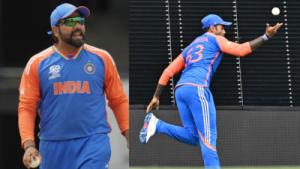The Asian Cricket Council (ACC) is increasingly optimistic about staging the Asia Cup in the second week of September, despite earlier uncertainties. This marks a shift from previous doubts fueled by tensions between India and Pakistan.
While final decisions are pending, a formal announcement is anticipated next week. The ACC plans to release the schedule for the six-team tournament in early July, coinciding with a scheduled meeting.
If everything proceeds smoothly, the ACC aims for a September 10 start date. The T20 format tournament will feature India, Pakistan, Afghanistan, Sri Lanka, Bangladesh, and the UAE. Promotional activities for the event have already commenced.

The UAE remains the leading contender to host the tournament, although a hybrid hosting model is also under consideration. Despite India being the designated host, the ACC previously decided that Asia Cups hosted by either India or Pakistan would be held at neutral venues.
The tournament's future was initially jeopardized by the terror attack in Pahalgam in April, further exacerbated by India's Operation Sindoor against Pakistan in May. This led to increased calls within India to boycott Pakistan in multilateral events, given the existing ban on bilateral cricket between the two nations. Rumors circulated about a potential Indian boycott of Pakistan in global events being discussed at the upcoming ICC meeting.
However, recent developments suggest a potential shift. The International Cricket Council (ICC) has announced schedules for the Women's ODI World Cup in India and Sri Lanka, and the Women's T20 World Cup in England, with India and Pakistan slated to compete in both. They are scheduled to face each other on October 5 in Colombo, and June 14 at Edgbaston, respectively.
While officials from the BCCI, ACC, and ICC have refrained from public statements, these developments indicate a continuation of cricketing ties between the two rivals, at least in global tournaments. These matches are vital revenue streams for global cricket. While India and the Board of Control for Cricket in India (BCCI) aren't reliant on revenue from these matches, governing bodies like the ICC and ACC, along with their member boards, heavily depend on them.
Newer articles
Older articles
 Gujarat Cricket Association Gears Up to Launch T20 League in 2025-26 Season
Gujarat Cricket Association Gears Up to Launch T20 League in 2025-26 Season
 Black Caps Set for Blockbuster Home Summer Against Cricket Giants
Black Caps Set for Blockbuster Home Summer Against Cricket Giants
 Daren Sammy Fined, Receives Demerit Point for Umpire Criticism After Test Match Controversy
Daren Sammy Fined, Receives Demerit Point for Umpire Criticism After Test Match Controversy
 Elon Musk Calls for ISS Retirement, Citing Mars Focus After $1.25B Allocation
Elon Musk Calls for ISS Retirement, Citing Mars Focus After $1.25B Allocation
 Smith Aims for Second Test Return After Unique Baseball Cage Recovery
Smith Aims for Second Test Return After Unique Baseball Cage Recovery
 Najmul Hossain Shanto Resigns as Bangladesh Test Captain After Sri Lanka Defeat
Najmul Hossain Shanto Resigns as Bangladesh Test Captain After Sri Lanka Defeat
 Sharma Reveals Heart-Stopping Moment of Yadav's Game-Changing Catch in T20 World Cup
Sharma Reveals Heart-Stopping Moment of Yadav's Game-Changing Catch in T20 World Cup
 Ex-India Star Engineer Slams ECB's Pataudi Trophy Renaming, Questions Anderson-Tendulkar Choice
Ex-India Star Engineer Slams ECB's Pataudi Trophy Renaming, Questions Anderson-Tendulkar Choice
 Man City Title Stripping: Unprecedented Chaos Looms for Premier League Amid Financial Allegations
Man City Title Stripping: Unprecedented Chaos Looms for Premier League Amid Financial Allegations
 Jin's Solo Concert in Korea: A Reunion with ARMY, Surprise Guests, and Electrifying Performances
Jin's Solo Concert in Korea: A Reunion with ARMY, Surprise Guests, and Electrifying Performances